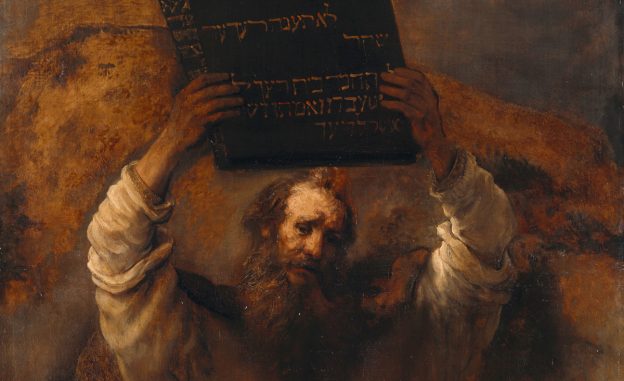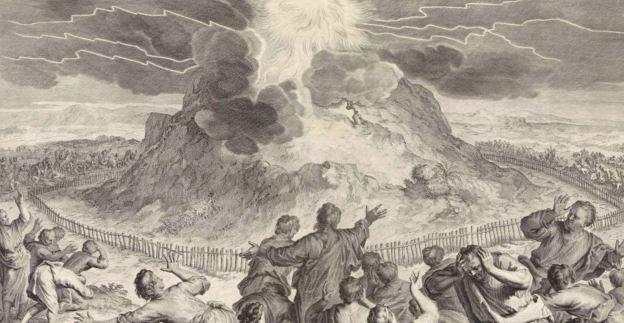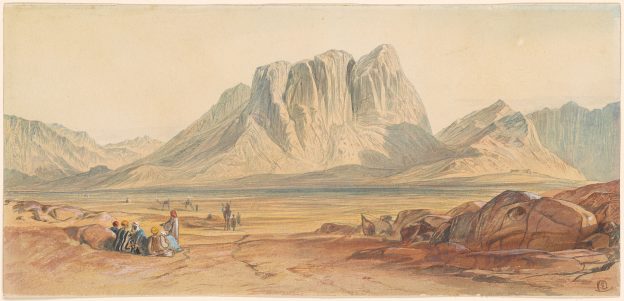New Years often bring new resolutions, or plans for changes in our lives. Even though 2020 was comparatively blessed for us in New Zealand compared to most parts of the world, many of us were still happy to see the back of it, and hope especially for something better in 2021; both in terms of the pandemic or personal circumstances and trials we endured.
But whether we are facing a new year in these “unprecedented times,” or a new year in “precedented times”, it is still important to look back before moving forward. By looking back, I mean looking back at God’s goodness and mercy over more than the previous twelve months, but our whole lives and through time. When we look back and see God’s goodness, it helps us move forward and puts resolutions and plans in perspective.
Before we move forward through the remainder of the Ten Commandments and the Book of Exodus, we should look back and see what God did for the Israelites. After all, the Ten Commandments begin with God reminding them that he is “the LORD your God, who brought you out of the land of Egypt, out of the house of slavery” (Exodus 20:2).
The God who is setting the terms of their relationship is the God who freed them from slavery. The Israelites were not resolving to meet a standard in order to gain admission to God’s presence, but were already in a privileged position of relationship. The Ten Commandments were not the standard of admission, but revelation to help the Israelites show heartfelt thanks to God for the grace they had received.
God sent Jacob and his sons to Egypt as shelter from a famine, and there they grew into a mighty nation. But the Egyptians forgot their debt owed to God and his servant Joseph who saved them, and enslaved the Israelites whose numbers they had come to fear (Exodus 1).
The Israelites cried out to God for help, and in time God raised up an Israelite named Moses who would reluctantly agree to act as God’s spokesman, and ultimately lead the Israelites out of Egypt (Exodus 2-4).
What followed next was God demonstrating his sovereignty over all things, and his supremacy over the so-called gods of Egypt. Plagues swept over the land of Egypt, even as hard-hearted Pharaoh refused to let the Israelites go. Finally, after one last terrible blow against the firstborn of every Egyptian, the Israelites were set free with the riches of Egypt plundered from their captors (Exodus 5-12).
The deliverance of Israel was not yet complete. God led the Israelites to the shores of the Red Sea, where Pharaoh had pursued them with his army, realising the economic effects of a large portion of the workforce disappearing. There, God led the Israelites through the sea, and finally defeated Pharaoh and his army by drowning them under the waves when they tried to follow (Exodus 14-15).
Then, as if that were not enough, God provided the Israelites with leadership, with directions, with water, and with food to eat in the barren desert terrain (Exodus 16-18). He taught them how to come into his special presence, as they were about to meet with God especially at the foot of Mount Sinai (Exodus 19). Finally, he graciously revealed his holiness and majesty to them in the Ten Commandments, reminding them of their sinfulness and their need for not just a physical redeemer, but a spiritual redeemer as well (Exodus 20).
It is in the context of this great redeeming act which God provided the Ten Commandments to Israel. He had already saved them and claimed them as his. How they moved forward in relationship with him was dependent on their heart response: would they see their sin, trust in God, and move forward seeking to obey God’s commands, or would they move away from him?
We are in a similar position as we look back. God’s story of redemption does not end at Sinai, but continues through hundreds of years, until the arrival of Christ, our redeemer. Through Christ’s sacrifice as our passover, we are redeemed from slavery to sin and the inevitable death that follows. In Christ we are released from the burden of our sin and our inability to keep God’s Holy Law, to relationship with him.
So if our resolutions for this year involve some greater desire or hope to serve God and do his will (a great resolution!), looking back reminds us that we do not do so to try and earn enough credits in God’s books to merit heaven. Instead, God has already merited it for us in Jesus, and freely given it to us despite our unworthiness.
Whatever this year brings, and whatever we manage to achieve in our personal lives or our service to God, it is not to earn God’s favour that we act, but because God has given us his favour.
Looking back, we see God has saved and blessed us richly in Christ. So we can move forward, serving God in thanks and hoping for better things.





